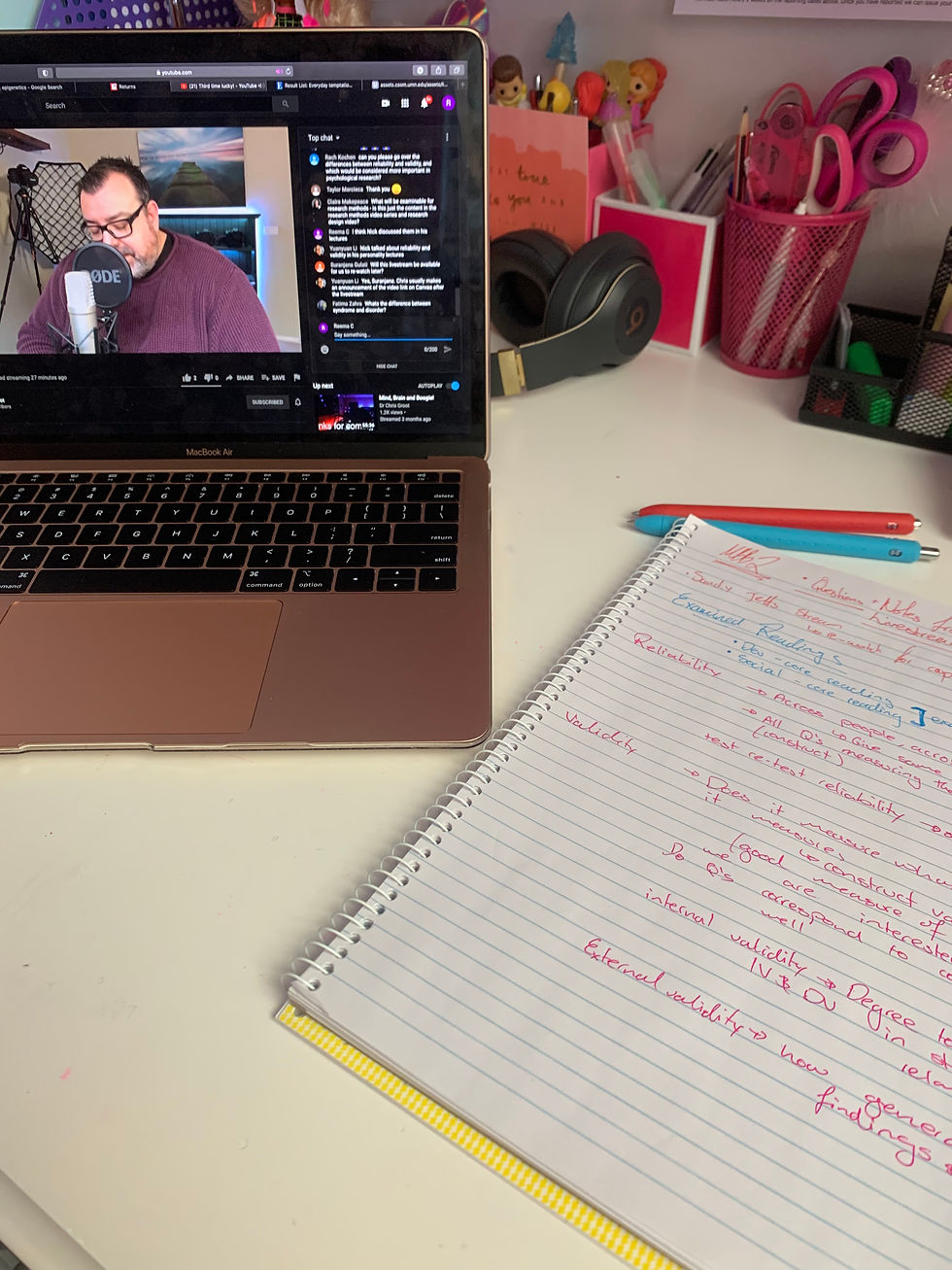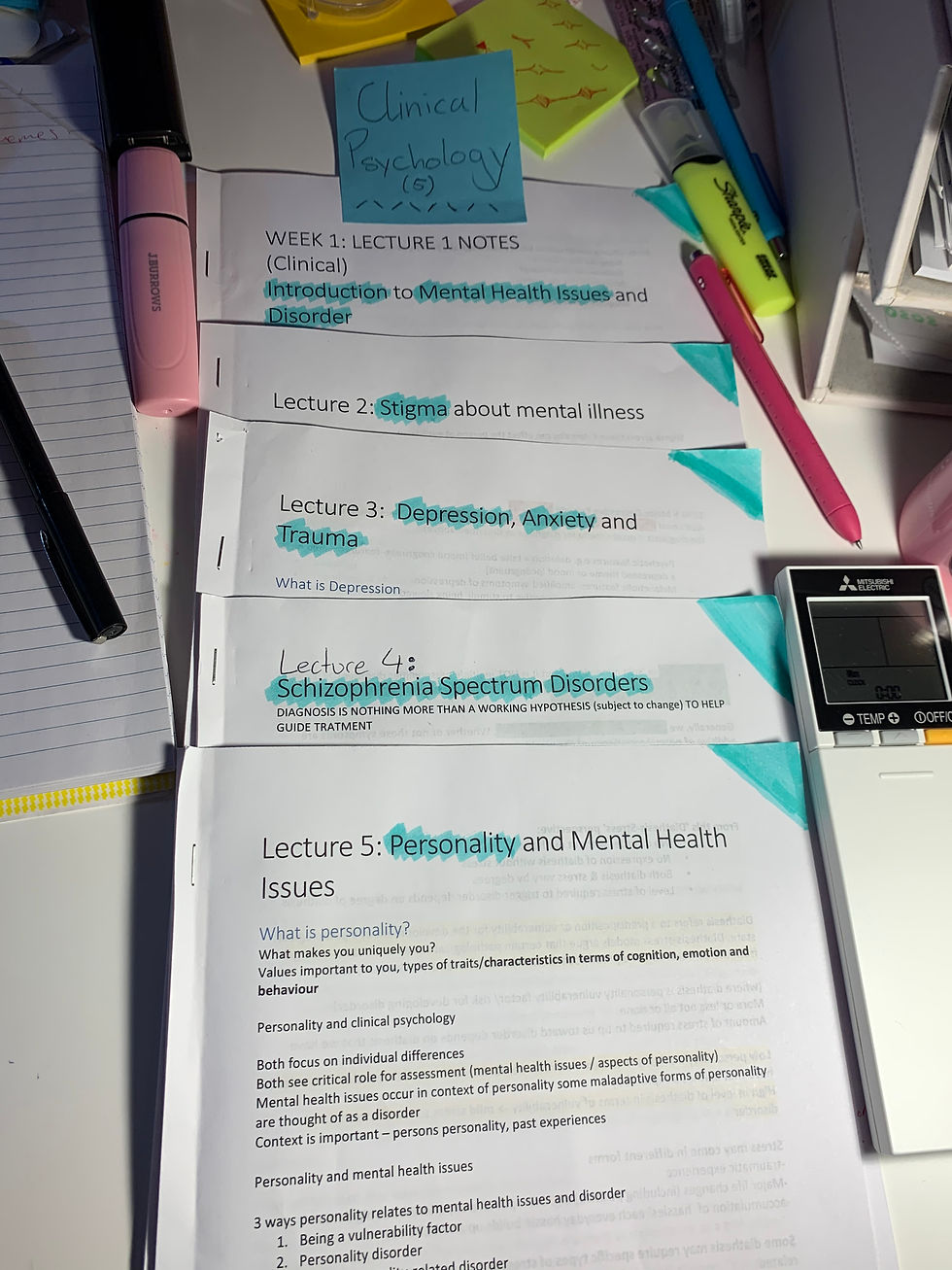4. Reflection
- reema13c
- Nov 3, 2020
- 3 min read
Throughout my semester of working towards my goal, as a person who gets easily distracted, fighting my daily desires or urges impacted my progress. Hofmann, Baumeister, Förster & Vohs, (2012) suggest that desires, especially those that can conflict with goals, result in internal struggle to manage and restrain. As a tactic to achieve my subgoal, I completed all my class lectures however, in working towards this goal I would get distracted by social media notifications on my phone, online shopping on my laptop and food. To overcome my media use, spending and eating desires, I tried putting my phone in a separate room, closing all unnecessary or distracting tabs on my laptop, and sitting away from the kitchen. Nevertheless, this did not completely eliminate my desires and therefore, continued to be a struggle even after I used those tactics. This may be due to the internal and external factors that influence my abilities to restrain my desires (Hofmann et al., 2012).

Instead, I tried to create a space to enable my focus and concentration by also adding, rather than only omitting, external elements to my study space. I found what works for me, which was watching lectures with noise-cancelling headphones, having a full drink bottle filled with cold water next to me, and sitting facing away from people (e.g. facing the window). Henceforth, when listening to lectures I not only hid my phone and removed distractions from my computer, I also created such a study space which I really helped me overcome distractions and desires. An alternative tactic that I could have used to further combat my urges when studying which I will try next semester, is ensuring I have eaten a nutrient-dense breakfast every morning rather than just coffee. This will not only combat my eating desire whilst listening to my lectures but also, help with feelings of tiredness and lack of concentration.
Whilst working towards my performance goal by staying organised, communicating with my tutor and focusing on my assessments, I hit setbacks that impacted my performance and motivation. My setbacks, although not directly related to my MBB2 subject, was disappointing verbal feedback from a teacher in another subject regarding our class’s participation. During the semester, I also had to deal with life challenges, grief, and mentally-draining subjects, all of which thwarted my wellbeing, leading to burnout. Although my passion for my psychology subject is harmonious, perhaps due to the alignment of my motivation with my values and identity (Ryan & Deci, 2000), I experienced obsessive passion with other commitments in my life which diminished my overall wellbeing (Vallerand et al., 2003). Obsessive passion may result in performance however, it differs from harmonious passion in that it does not allow for flexible engagement and balance in my life, ultimately decreasing wellbeing (Vallerand et al., 2003), leading to my burnout which I experienced in October 2020. Henceforth, although working towards this specific goal was not the source of my burnout, it definitely acted as a challenge and setback that not only decreased my motivation but also my energy levels, positive affect and mindset.
To regain my motivation and energy, I persisted even with setbacks, embraced the challenges and became inspired by the resilience of others around me, all of which are part of growth mindset literature (Dweck, 2014). What helped me with my growth mindset was appropriately expressing my emotion of anger, sadness and disappointment by speaking to my mum and engaging in emotional self-care such as calming activities like listening to music. I used emotional intelligence skills such as emotion differentiation (Kashdan et al. 2010), emotion regulation (Gross, 2015) and emotion self-care to help recognise and acknowledge my emotions before I dealt with the challenges. Emotion differentiation, or differentiating between general emotional experiences and specific emotional categories (Kashdan et al. 2010) has been associated with improved emotion regulation (Pond et al., 2012) and enhanced academic performance (Brackett, Rivers, Reyes, & Salovey, 2012). Once I was able engage in such emotionally intelligent activities, I was then able to address my setbacks, experience growth mindset, and re-focus on my performance goal in psychology.



Comments